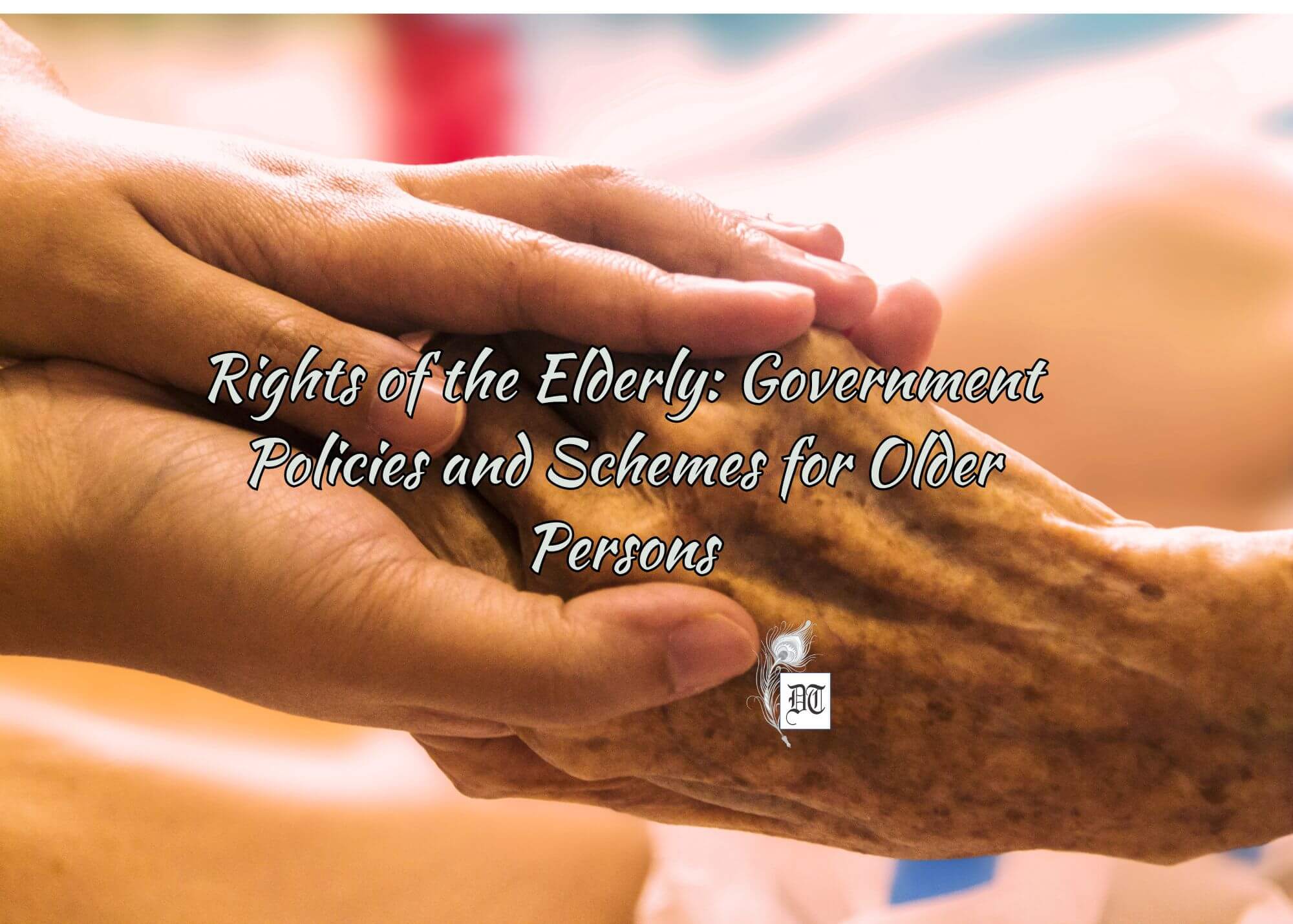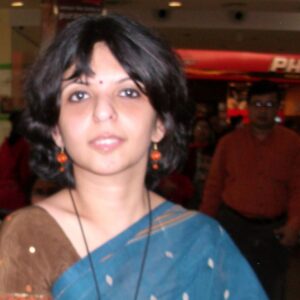Rita takes a look into the rights of the elderly and educates us about various government policies and schemes for the elders, in the weekly, exclusively for Different Truths.
Who exactly are ‘the Elderly?’
“Old Age” is usually associated with declining faculties, both mental and physical, and a reduction in social commitments (including participation in sports) of any person. The precise onset of old age varies culturally and historically. It is a social construct, rather than a biological stage. The persons in India, who have attained the age of sixty years and above, are defined as elderly for the purpose of availing old age benefits.
Over the years, the government has launched various schemes and policies for older persons. These schemes and policies are meant to promote the health, the well-being and independence of senior citizens around the country. Some of these programmes have been enumerated below:
National Policy for Older Persons
The central government came out with the National Policy for Older Persons, in 1999, to promote the health, safety, social security and the well-being of senior citizens in India. The policy recognises a person aged 60 years and above as a senior citizen. This policy strives to encourage families to take care of their older family members. It also enables and supports voluntary and non-governmental organisations to supplement the care provided by the family and provide care and protection to vulnerable elderly people. The policy has identified a number of areas of intervention – financial security, healthcare and nutrition, shelter, education, welfare, protection of life and properly etc. for the wellbeing of older persons in the country. The main objective of this policy is to make older people fully independent citizens. This policy has resulted in the launch of new schemes such as:
- Strengthening of primary health care system to enable it to meet the health care needs of older persons
- Training and orientation to medical and paramedical personnel in the healthcare of the elderly.
- Promotion of the concept of healthy ageing.
- Assistance to societies for production and distribution of material on geriatric care.
- Provision of separate queues and reservation of beds for elderly patients in hospitals.
- Extended coverage under the Antyodaya Scheme with emphasis on the provision of food at subsidised rates for the benefit of older persons especially the destitute and marginalised sections.
National Council for Older Persons
A National Council for Older Persons (NCOP) has been constituted by the Ministry of Social Justice and Empowerment to operationalise the National Policy on Older Persons. The basic objectives of the NCOP are to:
- Advise the government on policies and programmes for older persons
- Provide feedback to the government on the implementation of the National
Policy on Older Persons as well as on specific programme initiatives for older persons
- Advocate the best interests of older persons
- Provide a nodal point at the national level for redressing the grievances of older persons, which are of an individual nature provide lobby for concessions, rebates, and discounts for older persons both with the government as well as with the corporate sector
- Represent the collective opinion of older persons to the government
- Suggest steps in making old age productive and interesting for suggesting measures for enhancing the quality of inter-generational relationships
- Undertake any other work or activity in the best interest of older persons.
Integrated Programme for Older Persons
Implemented by the Ministry of Social Justice & Empowerment this scheme provides financial assistance up to 90 per cent of the project cost to non-governmental organizations or NGOs as on March 31, 2007. This money is used to establish and maintain old age homes, day care centres, six mobile medicare units and to provide non-institutional services to older persons.
The scheme of Integrated Programme for Older Persons (IPOP) is being implemented, since 1992. Under the Scheme, financial assistance up to 90 percent of the project cost is provided to Non-Governmental Organisations for running and maintenance of old age homes, day care centers and mobile medicare units. The scheme has been revised w.e.f. 1.4.2008. Besides an increase in the amount of financial assistance for existing projects, governments/ Panchayati Raj institutions/ Local Bodies have been made eligible for getting financial assistance. Several innovative projects have also been added as being eligible for assistance under the Scheme. Some of these are:
- Maintenance of Respite and Continuous Care Homes
- Day Care Centres for Alzheimer’s disease / Dementia patients
- Physiotherapy Clinics for older persons
- Helplines and Counselling Centres for older persons
- Sensitising programmes for children particularly in schools and colleges
- Regional Resource and Training Centres
- Training of Caregivers to the Older Persons
- Awareness Generation Programmes for Older Persons and Caregivers
- Formation of Senior Citizens Associations, etc.
The eligibility criteria for beneficiaries of some important activities/ projects supported under the Scheme are:
- Old Age Homes – for destitute older persons
- Mobile Medicare Units – for older persons living in slums, rural and inaccessible areas where proper health facilities are not available
- Respite Care Homes and Continuous Care Homes– for older persons seriously ill requiring continuous nursing care and respite
Present Concessions and Facilities Available
The Ministry of Railways provides the following facilities to senior citizens:
- Separate ticket counters for senior citizens at various (Passenger Reservation System) PRS centers if the average demand per shift is more than 120 tickets.
- Provision of lower-berth to male passengers of 60 years and above and female passengers of 45 years and above.
- 40 per cent and 50 per cent concession in rail fare for male passengers aged 60 years and above and female passengers aged 58 years and above respectively.
- Wheelchairs at stations for old age passengers.
Ministry of Health & Family Welfare Central Government Health Scheme provides pensioners of central government offices the facility to obtain medicines for chronic ailments up to three months at a stretch. The Ministry of Health and Family Welfare provides for (i) separate queues for older persons in government hospitals and (ii) geriatric clinic in several government hospitals.
The Ministry has taken a new initiative called the National Programme for the Health Care for the Elderly (NPHCE) in the Eleventh Five Year Plan. The programme has been implemented from the year 2010-11 with an approved outlay of 288 crores for the remaining period of the 11th Five Year Plan.
The objectives of the programme are to:
- Provide preventive, curative and rehabilitative services to the elderly persons at various level of health care delivery system of the country
- Strengthen referral system
- Develop specialised manpower and
- Promote research in the field of diseases related to old age.
The basic strategies of the programme are to:
- Strengthening of eight Regional Geriatric Centres
- Dedicated facilities at district hospital including 10 bedded wards
- Dedicated services at PHC/ CHC level
- Primary health care approach.
The major components of the programme are:
To establish geriatric department in all the existing eight Regional Geriatrics Centres
- Strengthening healthcare facilities for elderly at various levels of 100 identified districts in 21 states of the country.
- Regional Institutions to provide technical support to geriatric units at district hospitals whereas district hospitals will supervise and nine coordinate the activities down below at CHC, PHC, and sub-centres.
Source: 2011, National Human Rights Commission, India
Picture design Anumita Roy
#HumanRights #Advocacy #Elderly #NationalHuamnRightsCommission #HealthCare #NationalCounsilOfElderly #FiveYearsPlan #WelfareCentralGovernment #CareGivers #OlderPerson #OldAge #ElderlyCare #BenevolenceInKolkata #DifferentTruths






 By
By


 By
By